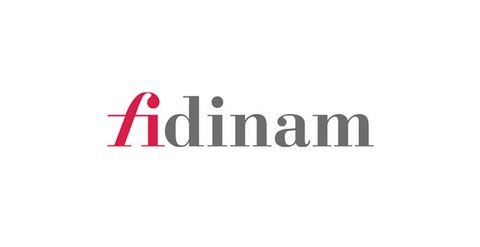Companies news
Fidinam releases first chapter of Hong Kong Employers & Employment Mobility guide: Italy

Retaining key staff is essential for the success of a business. Hong Kong employers are fully aware of it, and constantly strive to provide more flexibility to their employees. This includes international mobility. In a series of articles, Fidinam will address some possible work arrangements Hong Kong companies can offer to foreign staff willing to work from Europe. This 1st chapter is dedicated to Italy.
1. From Hong Kong
Options will depend on whether or not your Hong Kong business has a presence in Italy. If so (having a subsidiary or a sister company therein), Hong Kong companies can consider dispatching or transferring their staff under that Italian entity. If not, Hong Kong employers can simply decide to keep some staff under Hong Kong payroll while having them working from Italy. Either way, this will trigger some consequences in terms of taxes, social contributions, and immigration.
1.1 Hong Kong Salaries Taxes
When employees are kept under Hong Kong payroll while working from Italy, their Hong Kong employer shall keep declaring their remuneration under their Employer’s Return. Subsequently, employees shall keep filing an Individual Tax Return in Hong Kong, reporting the same remuneration. However, as long as spending less than sixty (60) days per year in Hong Kong, employees working from Italy shall be fully exempted from Hong Kong salaries tax. This means no more tax liability, but reporting is still mandatory.
When employees are transferred to and hired by an Italian entity, they shall in principle no longer pay salaries taxes in Hong Kong. However, having a staff abroad fully dedicated to the production of Hong Kong income may characterise the presence of a permanent establishment of the Hong Kong company, in the relevant jurisdiction (Italy) with profits taxable locally. This is to be assessed on a case-by-case basis, and we recommend seeking advice upfront.
1.2 Hong Kong (MPF) Social Contributions
Consequences in terms of Mandatory Provident Fund (MPF) shall be similar whether the foreign staff is kept under Hong Kong payroll while working from Italy, or transferred to an Italian entity becoming its new employer. In fact, foreign employees working and residing overseas (Italy), who do not hold any Hong Kong employment visa, have no sufficient ties with Hong Kong to fall under the Mandatory Provident Fund (MPF) Scheme. Hence, no MPF contributions shall be due. This might differ for staff splitting their time between Hong Kong and Italy, and/or holding an Employment Visa entitling them to work from Hong Kong.
Besides, foreign staff originally working in Hong Kong and transferred to Italy may ask for an early withdrawal of their MPF contributions if they permanently leave Hong Kong.
1.3 Hong Kong Immigration (Visa)
If no longer working from Hong Kong, foreign staff (even if still under Hong Kong payroll), are not required to hold any Employment Visa. Sporadic visits to Hong Kong can be sufficiently substantiated by a Tourism Visa. This however differs if the frequency of the visits to Hong Kong increases and/or if foreign staff need to work from Hong Kong over longer periods of time (exceeding short business trips).
2. In Italy
Whether foreign employees work in Italy for a Hong Kong or an Italian employer, this triggers some Italian taxes, social contributions, and immigration consequences to anticipate; closely linked to the new Italian tax residence of such employees.
2.1 Italian Taxes: IRPEF, Impatriation Regime, Flat Tax
IRPEF: Italian tax residents are subject to personal income tax (‘Imposta sul Reddito delle Persone Fisiche” or ‘IRPEF’), on their worldwide income, regardless their category (i.e. real estate income, business income, employment/self-employment income, and capital gains). IRPEF applies on the aggregate taxable income, at progressive rates varying from 23% (applicable up to taxable income not exceeding 15.000 EUR) to 43% (for taxable income over 50.000 EUR). It is topped up by regional and municipal tax supplements (which rates vary depending on regions and municipalities).
Impatriation Regime: Under specific conditions, individuals who have not resided in Italy over the past 2 fiscal years, and who contemplate working mainly from Italy for at least the next 2 fiscal years, can apply for the impatriation regime and be exempted of IRPEF on 70% of their Italian income. This exemption includes: (i) employment income, if agreed before the transfer (from Hong Kong to Italy); (ii) self-employment income; and/or (iii) sole proprietorship income. This preferential regime can apply for 5 years, and be extended to another 5 years under some conditions.
Flat Tax:New Italian tax residents can also choose to apply for the so-called “res non dom” regime. It enables to pay a flat substitute tax of € 100.000 for each tax year, during a period of up to 15 years, regardless of the amount of foreign taxable income. This regime is open to individuals who: (i) transfer their tax residence to Italy; and (ii) have not been resident for tax purposes in Italy for at least 9 tax periods in the previous 10 years. It can be extended to the entire household, whereby each member of the family is entitled to enjoy a tax rebate on income generated abroad. In addition, individuals opting for the “res non dom” regime may enjoy: (i) exemption from IVIE (Tax on the Value of Immovable Property Abroad) and IVAFE (Tax on the Value of Financial Assets Abroad); and (ii) exemption from the obligation to monitor investments and financial assets held abroad.
2.2 Italian Social Contributions
Employees working for an Italian employer will automatically be enrolled into the Italian statutory social security pension system. Voluntary contributions which will supplement the statutory pension are also possible. Italian social contributions may be deducted from individual income subject to IRPEF, thus lowering the final individual taxation.
Employees working for a Hong Kong employer, but fully or mostly from Italy, shall also pay social contributions in Italy. In such a case, the Hong Kong employer shall appoint a withholding agent in Italy for the purpose of paying social security contributions locally, on a monthly basis.
The rate applied to employees in general is 33%, which is charged both to the employer (to the extent of 2/3) and to the employee (for the remaining 1/3).
2.3 Italian Immigration (Visa)
Italian passport holders, as well as EU passport holders, do not need a visa to work and reside in Italy. Otherwise, different types of work visas and residence permits are available, depending on the nationality and the type of work or residence contemplated in Italy. Full details of the available visas are available on the Italian Government website: https://vistoperitalia.esteri.it/home.aspx.
***
Fidinam has offices worldwide, and can assist you with all administrative and tax difficulties triggered by these flexible working arrangements, both in Hong Kong and in Italy. Contact us and seek advice.








